Why the Canadian woman who was first in the world to study giraffes in the wild — and is still considered one of the planet’s foremost experts on the species — is only now getting her due

THE FIRST TIME I spotted her, Anne Innis Dagg was sitting alone on a small settee in the middle of a springtime party at a posh downtown Toronto hotel, oblivious to the glittering swirl surrounding her. While many of the other guests were in silks and heels, Innis Dagg wore slacks, sensible shoes and a short-sleeved yellow T-shirt decorated with giraffes. Rather than nibbling on canapés, schmoozing and sipping good wine, she was absorbed in a tattered newspaper.
That’s Innis Dagg in a nutshell: she marches to her own beat. And that has led her to a curious life of extraordinary scientific firsts and extraordinary obscurity. Widely considered the founder of giraffe science, she was the first to study the giraffe in the wild; the first zoologist to study any African animal in the wild; an inventor of the scientific discipline of behavioural biology; and, more than six decades and copious academic papers and books later, still one of the world’s leading experts on the giraffe, Giraffa camelopardalis.
“You can’t be a giraffe researcher unless you’ve read her book,” says Fred Bercovitch, a zoologist who is executive director of the Texas-based group Save the Giraffes.
But partly because she has been in the vanguard — and partly because she chose to study an eccentric ungulate rather than a cuddly primate — those accomplishments have not brought her decades of fame. While generations of zoologists have relied on her scientific work and quoted her in their publications, the woman herself has lived resolutely out of the limelight in Waterloo, Ont. She has languished in part-time academic jobs with no tenure, applying her bacon-slicer of a mind to studies on everything from feminism to literature to camels to animal rights.
Esta historia es de la edición September-October 2019 de Canadian Geographic.
Comience su prueba gratuita de Magzter GOLD de 7 días para acceder a miles de historias premium seleccionadas y a más de 9,000 revistas y periódicos.
Ya eres suscriptor ? Conectar
Esta historia es de la edición September-October 2019 de Canadian Geographic.
Comience su prueba gratuita de Magzter GOLD de 7 días para acceder a miles de historias premium seleccionadas y a más de 9,000 revistas y periódicos.
Ya eres suscriptor? Conectar
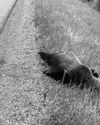
ANIMAL XING
THIS PAST SUMMER AN AMBITIOUS WILDLIFE UNDER/OVERPASS SYSTEM BROKE GROUND IN B.C. ON A DEADLY STRETCH OF HIGHWAY JUST WEST OF THE ALBERTA BORDER. HERE’S HOW IT HAPPENED.
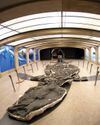
Unearthing a giant
Almost 30 years ago, paleontologist Elizabeth “Betsy” Nicholls made a discovery of colossal proportions
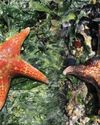
WE DID THIS
AS THE IMPACTS OF GLOBAL WARMING BECOME INCREASINGLY EVIDENT, THE CONNECTIONS TO BIODIVERSITY LOSS ARE HARD TO IGNORE. CAN THIS FALL’S TWO KEY INTERNATIONAL CONFERENCES POINT US TO A NATURE-POSITIVE FUTURE?
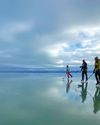
The COOLEST COUNTRY
“The coolest country” celebrates the wonders of winter with an all-Canadian theme. The 20-page travel planner includes a bucket list from travel writer Robin Esrock, steamy spa ideas, ice fishing destinations, festival fun, northern itineraries and more!

KEEPER of the SEA
FROM BEING LABELLED DEVIL’S APRON BY FRUSTRATED FISHERMEN TO BEING LAUDED AS A SUSTAINABLE FOOD SOLUTION: HOW KELP’S POTENTIAL IS BEING REALIZED, JUST AS SCIENTISTS LEARN IT’S DECLINING
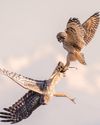
WILD THINGS
WILD CANADIAN GEOGRAPHIC PRESENTS THE WINNERS OF ITS ANNUAL CANADIAN WILDLIFE PHOTOGRAPHY OF THE YEAR COMPETITION

AN EMPTY LANDSCAPE
AFTER MORE THAN A MILLION YEARS ON EARTH, CARIBOU ARE UNDER THREAT OF GLOBAL EXTINCTION. THE PRECIPITOUS DECLINE OF THE ONCE MIGHTY HERDS IS A TRAGEDY THAT IS HARD TO WATCH — AND EVEN HARDER TO REVERSE.
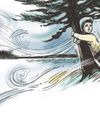
NORTHERN EXPOSURE
BON INTO A CARIBOU-HUNTING CREE FAMILY IN NORTHERN MANITOBA, ACCLAIMED PLAYWRIGHT AND NOVELIST. TOMSON HIGHWAYS PAYS TRIBUTE TO THE MAGICAL WORLD OF HIS CHILDHOOD IN PERMANENT ASTONISHMENT

INTO THE ARCTIC
CANADIAN PAINTER AND FILMMAKER CORY TRÉPANIER EXPLORES THE SUBLIME AND RAPIDLY CHANGING CANADIAN ARCTIC
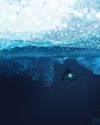
Under the ice
Until the last decade, we knew little about what lay beneath the Arctic ice. Now scientists and explorers are shedding light on this vanishing world.